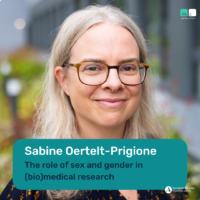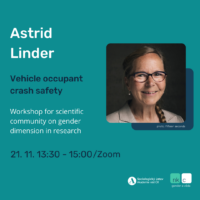Why can’t one size fit all?
Let’s look at some examples. Between 1997 and 2000, ten drugs were withdrawn from the US pharmaceutical market because of their life-threatening side effects – And eight of them posed a greater health risk to women than to men. In technology research, people of smaller stature (in most cases women, but sometimes men too) are classed as ‘atypical drivers’, which has led to a higher mortality rate from car accidents among them. Minorities still face disproportionate challenges – based, for example, on ethnicity, sexual orientation, or gender identity – which can dramatically impact their mental health and wellbeing. Women are responsible for the majority of caring tasks, but this is often not taken into account in economic models and caring activities tend to be undervalued or left out from research altogether. The impacts of climate change vary depending on geographical location, but women and other marginalised groups are often the ones who are the most severely impacted.
Research, development, and innovation that do not take into account the diversity of their users produce erroneous results. We seek to improve the situation by educating both the public and researchers about the gender dimension and intersectionality in research and innovation.
Our activities
One size doesn’t fit all is a campaign led by the Centre for Gender and Science that focuses on the gender dimension in research and innovation. The campaign organises awareness-raising activities aimed at the general public and prepares materials and scientifically oriented lectures for the research community in order to promote a better understanding of the gender dimension and provide learning opportunities on how to think about integrating it into different fields of research.
The majority of our outputs are in Czech, but biannually we organise webinars with international experts in English. The webinars are primarily intended to inspire researchers based in the Czech Republic who are planning to apply for Horizon Europe funding on how to implement the gender dimension in their own research, but they should also inspire other researchers across various research fields and demonstrate how gender intersects with their research topics.
Every year, we select two priority topics and for each of them we organise a webinar (in English) and write a case study or publish other materials (in Czech).
Past webinars have dealt with topics such as The role of sex and gender in (bio)medical research, A gender perspective on (embodied) AI, Vehicle occupant crash safety. Gendering Scientific Research, Geographies of Intersectionality and Integrating gender in food systems research.
If you would like to join our mailing list so that we can inform you about our activities and events relating to the gender dimension in research and innovation, please contact us at [email protected].


